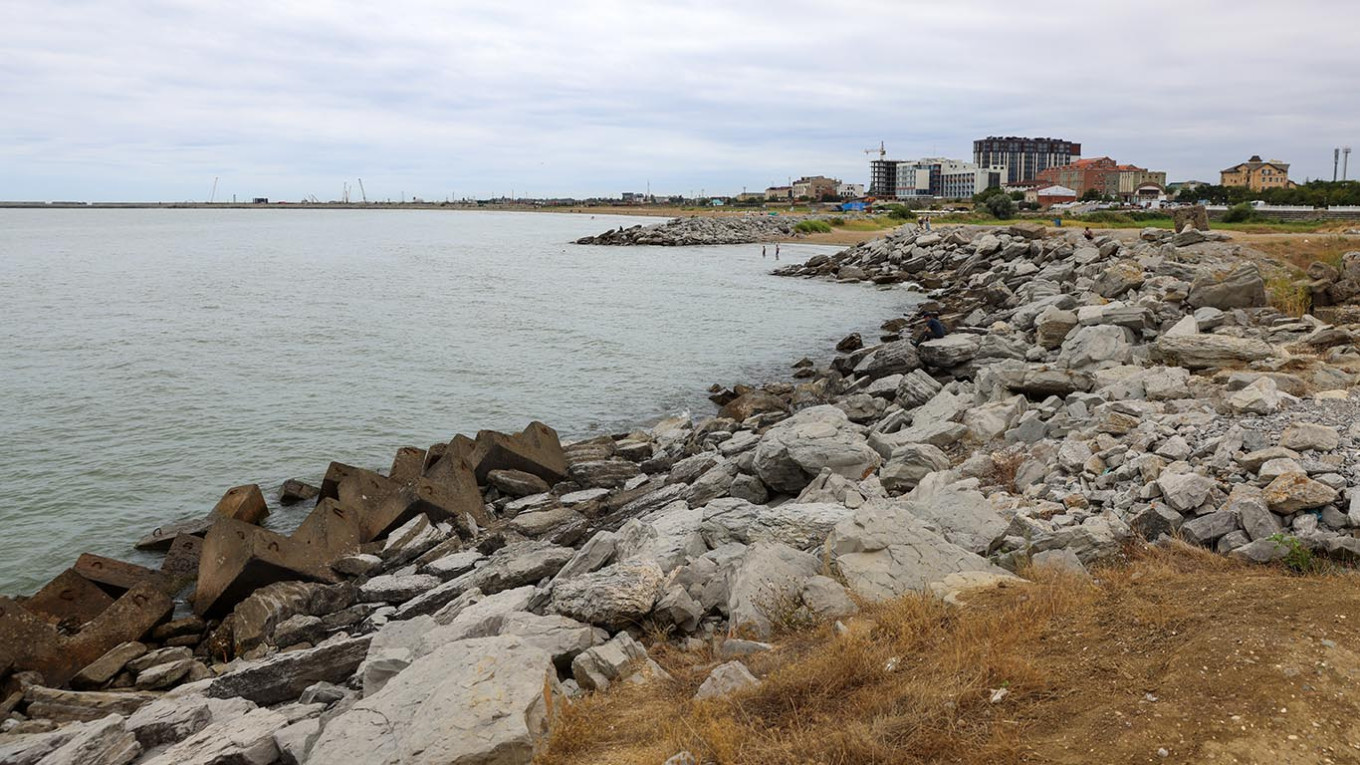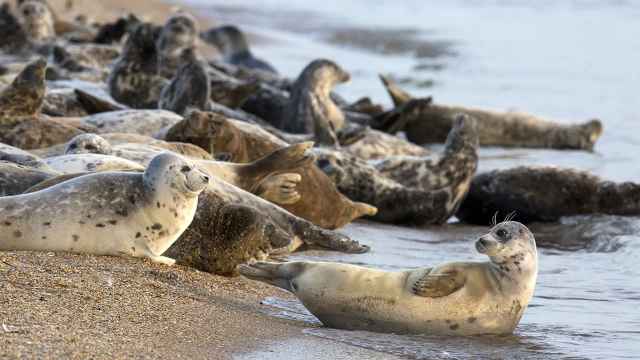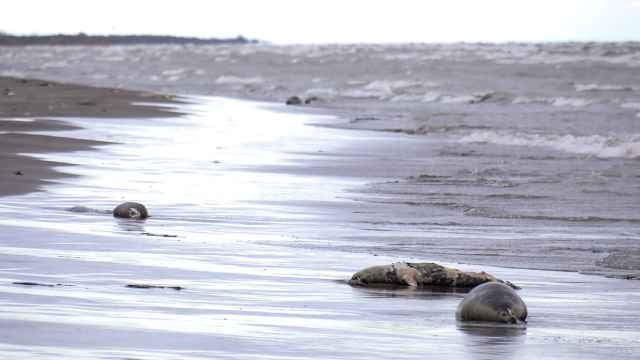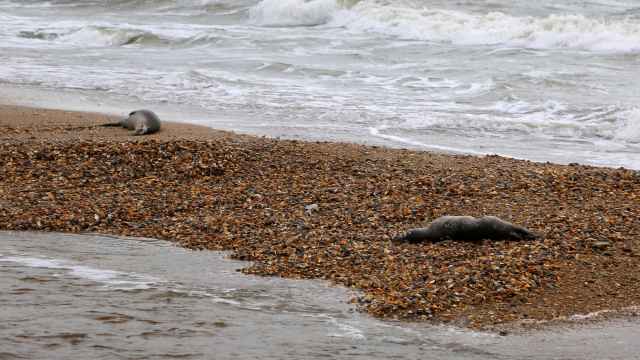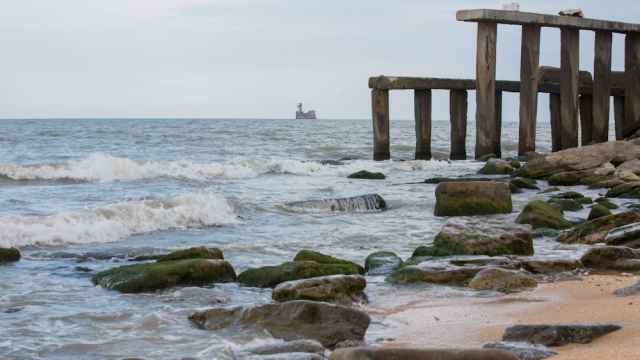Water levels in the Caspian Sea, the world’s largest inland body of water, have dropped to historic lows, Russian state news agency TASS reported this week, citing an Astrakhan-based research institute.
Specialists at the Volga-Caspian Fisheries Research Institute said the Caspian’s water level fell to more than 29 meters below the Baltic Sea, a standard reference point used in Russia and some post-Soviet states to measure the depths of landlocked bodies of water across the region.
The average Caspian Sea level over the past century has varied, but it typically hovers around 26 to 27 meters below the Baltic Sea.
“The decline in sea level is most evident in the shallow northern part, which borders Russia and Kazakhstan,” the institute told TASS. “This is where the retreating sea is exposing large areas of the seabed. It is also where the most biologically rich and densely populated ecosystems are located.”
The Caspian Sea has been receding at an alarming pace since 2015, with water levels falling by nearly 80 centimeters over the past five years, according to the institute.
Scientists blame the drop on a combination of climate change, which leads to more evaporation, and a reduced inflow of water from rivers that feed the sea, particularly the Volga and Ural.
The Volga River, which originates in Russia and supplies more than 80% of the Caspian’s water, has been increasingly strained by dam construction and the expansion of irrigation systems to support agriculture along its banks, experts say.
The shrinking water levels pose a serious threat to the Caspian’s fragile ecosystem, including endangered species such as the wild sturgeon and the Caspian seal.
A Message from The Moscow Times:
Dear readers,
We are facing unprecedented challenges. Russia's Prosecutor General's Office has designated The Moscow Times as an "undesirable" organization, criminalizing our work and putting our staff at risk of prosecution. This follows our earlier unjust labeling as a "foreign agent."
These actions are direct attempts to silence independent journalism in Russia. The authorities claim our work "discredits the decisions of the Russian leadership." We see things differently: we strive to provide accurate, unbiased reporting on Russia.
We, the journalists of The Moscow Times, refuse to be silenced. But to continue our work, we need your help.
Your support, no matter how small, makes a world of difference. If you can, please support us monthly starting from just $2. It's quick to set up, and every contribution makes a significant impact.
By supporting The Moscow Times, you're defending open, independent journalism in the face of repression. Thank you for standing with us.
Remind me later.


